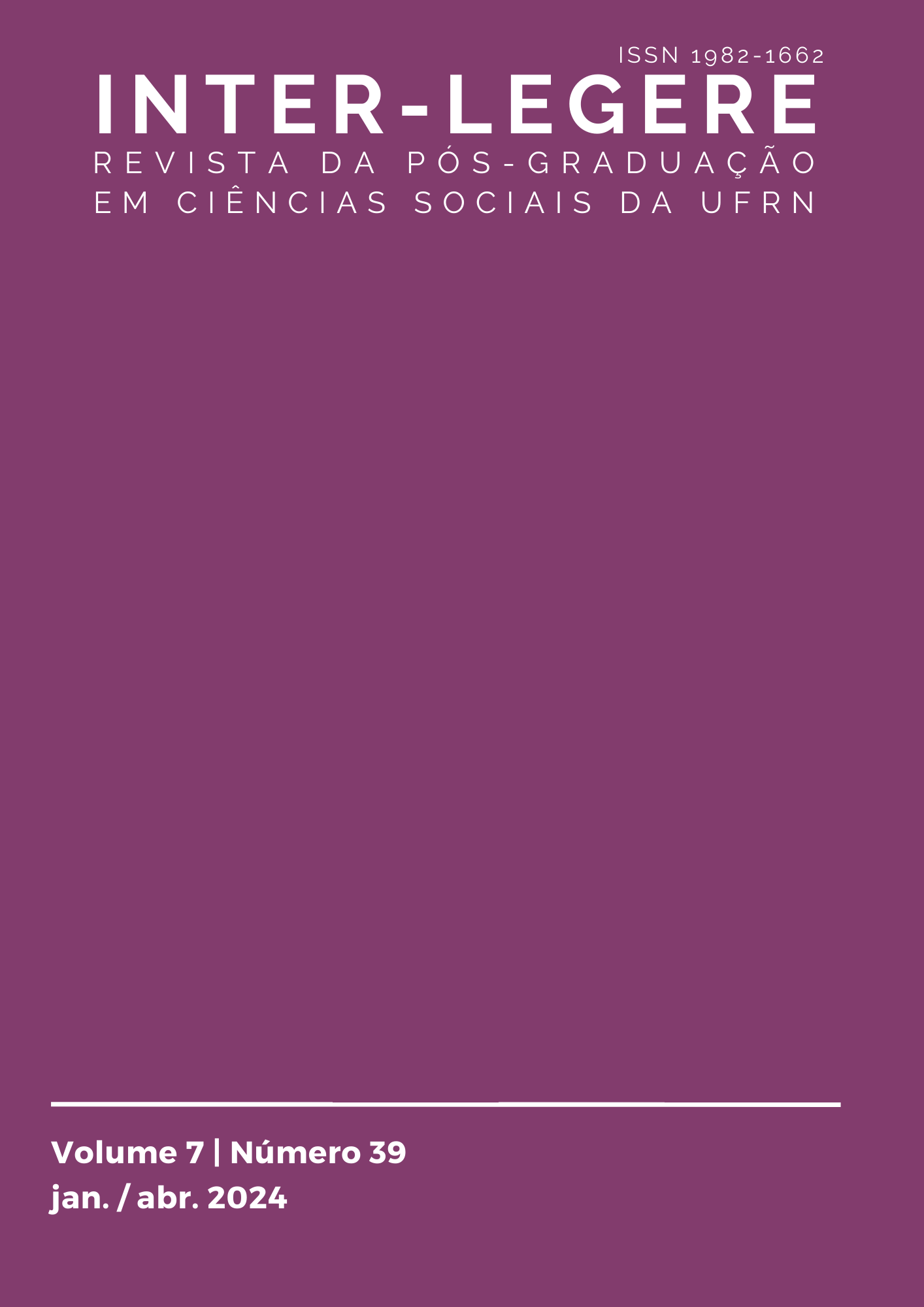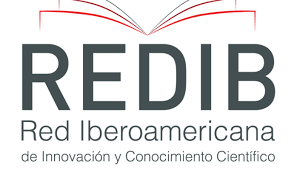WEAVING PARTICIPATORY NETWORKS FROM AN ACTION-RESEARCH WITH INDIGENOUS PEOPLE AND QUILOMBOLS IN CEARÁ: Experience report of the social investigation process
Experience report of the social investigation process
DOI:
https://doi.org/10.21680/1982-1662.2024v7n39ID33168Keywords:
Indigenous Peoples and Quilombolas, Sociological Research Methodology, Research participant action, Production of sensesAbstract
The methodological dynamics employed by the Social Sciences bring with them their own specificities, and the context of Sociology offers multiple possibilities for acting and carrying out social investigations. However, the Eurocentric matrix is still being disseminated, predominantly in undergraduate and graduate courses in the area, as well as in its theoretical references. Thus, the present work aims to carry out an experience report about the main contributions of the use of participatory action research methodologies, as well as to portray the context of conducting the research “Detection of injuries and protective factors in mental health of indigenous populations and quilombolas of Ceará”. For this purpose, a description of the phases of conducting the research and their respective developments is used in correlation with the theoretical dialogue on the methodological paths taken. From the reflections carried out, it can be seen that participatory action research provides an improvement of the sociological method, thus allowing to achieve innovative ways of doing research. It is concluded that these approaches broaden the horizon of Sociology perspectives when (re)thinking a new praxis for carrying out social investigations.
Downloads
References
BECKER, Howard Saul. Métodos de Pesquisa em Ciências Sociais. São Paulo: Editora HUCITEC, 1993.
BERGER, Peter. Perspectivas Sociológicas. 30ª ed. Petrópolis: Vozes, 2018.
BOURDIEU, Pierre; CHAMBOREDON, Jean-Claude; PASSERON, Jean-Claude. El Oficio de Sociólogo: Presupuestos epistemológicos. Buenos Aires: Siglo XXI, 2008.
BOURDIEU, Pierre. A dominação masculina. 9ª ed. Rio de Janeiro: Editora Bertrand, 2010.
BOURDIEU, Pierre. O poder simbólico. 11ª ed. Rio de Janeiro: Editora Bertrand, 2011.
BRANDÃO, Carlos Rodrigues; STRECK, Danilo Romeu (Org..). Pesquisa participante: o saber da partilha. Aparecida: Ideias & Letras, 2021.
CAMACHO, Thimotheo. Florestan Fernandes e as ciências sociais no Brasil. Revista Estudos de Sociologia, Araraquara, v. 5, n. 8, 2008. Disponível em: https://periodicos.fclar.unesp.br/estudos/article/view/832. Acesso em: 2 jun. 2023.
CANO, Ignacio. Nas trincheiras do método: o ensino da metodologia das ciências sociais no Brasil. Sociologias, v. 14, p. 94-119, 2012. Disponível em: https://www.scielo.br/j/soc/a/QC6rphm93gZgXmt6FSqWJys/abstract/?lang=pt. Acesso em: 22 mai. 2023.
DURKHEIM, Émile. As Regras do método sociológico. Petrópolis: Editora Vozes, 2020.
FALS BORDA, Orlando. Investigación participante. Bogotá: Tercer Mundo, 1979.
FALS BORDA, Orlando. Acción y conocimiento: la investigación-acción en las ciencias sociales. Bogotá: CINEP, 1991.
FERNANDES, Florestan. Em busca de uma sociologia crítica e militante. In: FERNANDES, Florestan. A Sociologia no Brasil: Contribuição para o estudo de sua formação e desenvolvimento. Petrópolis: Editora Vozes, 1997. Cap. 8. p. 140-212.
HAGUETTE, Teresa Maria Frota. Pesquisa-ação e pesquisa participante. In: HAGUETTE, Teresa Maria Frota. Metodologias Qualitativas na Sociologia. Petrópolis: Editora Vozes, 2005. Cap. 11. p. 109-167.
MILLS, Charles Wright. A imaginação sociológica. 4ª ed. Rio de Janeiro: Zahar, 1982.
MORETTI, Cheron Zanini. Paulo Freire e as palavras geradoras de mundos e de pronúncia de novas realidades. Educação, Porto Alegre, v. 33, n. 2, p. 163-164, maio/ago. 2010. Disponível em: http://acervo.paulofreire.org:8080/jspui/bitstream/7891/4288/2/FPF_PTPF_01_0937.pdf. Acesso em: 24 jul. 2022.
MOURA JUNIOR, James Ferreira. Saúde mental indígena e quilombola: pesquisa detecção de agravos e fatores de proteção em saúde mental de populações indígenas e quilombolas do Ceará. Fortaleza: Expressão Gráfica e Editora, 2022. Disponível em: https://coronavirus.ceara.gov.br/project/relatorio-de-pesquisa-saude-mental-indigena-e-quilombola/.Acesso em: 1 mar. 2023.
FREIRE, Paulo. Pedagogia do oprimido. 70ª ed. Rio de Janeiro: Paz e Terra, 2019.
PARANHOS, Ranulfo et al. Uma introdução aos métodos mistos. Sociologias, v. 18, p. 384-411, 2016. Disponível em: https://www.scielo.br/j/soc/a/WtDMmCV3jQB8mT6tmpnzkKc/. Acesso em: 22 mai. 2023.
PAVEZI, Ingrid Berns. Ampliando as possibilidades metodológicas de pesquisa: possíveis contribuições de “DECOLONIZING METHODOLOGIES” para o contexto brasileiro de produção do conhecimento. Sociologias Plurais, v. 2, n. 2, 2014. Disponível em: https://revistas.ufpr.br/sclplr/article/viewFile/64756/37683. Acesso em: 22 mai. 2023.
RAMOS, Alberto Guerreiro. Introdução crítica à sociologia brasileira. Rio de Janeiro: Editora UFRJ, 1995.
RIBEIRO, Djamila. Lugar de fala. São Paulo: Editora Jandaíra, 2019.
SIQUEIRA, Paula; FAVRET-SAADA, Jeanne. “Ser afetado”, de Jeanne Favret-Saada. Cadernos de Campo, v. 13, n. 13, p. 155-161, 2005. Disponível em: https://www.revistas.usp.br/cadernosdecampo/article/view/50263. Acesso em: 23 mai. 2023.
VIEIRA, Glicia; QUADROS, Ruy. A relação sujeito-objeto na pesquisa qualitativa. Revista Eletrônica de Administração e Turismo - ReAT, v. 7, n. 4, p. 759-774, 2015. Disponível em:https://periodicos.ufpel.edu.br/index.php/AT/article/view/4975. Acesso em: 01 jun. 2023.
Downloads
Published
How to Cite
Issue
Section
License
Copyright (c) 2024 Prof. Dr. James Moura Junior, Prof. Esp. Antonio Carlos Silva

This work is licensed under a Creative Commons Attribution-NonCommercial-ShareAlike 4.0 International License.


 Português (Brasil)
Português (Brasil) English
English Français (Canada)
Français (Canada) Español (España)
Español (España)





